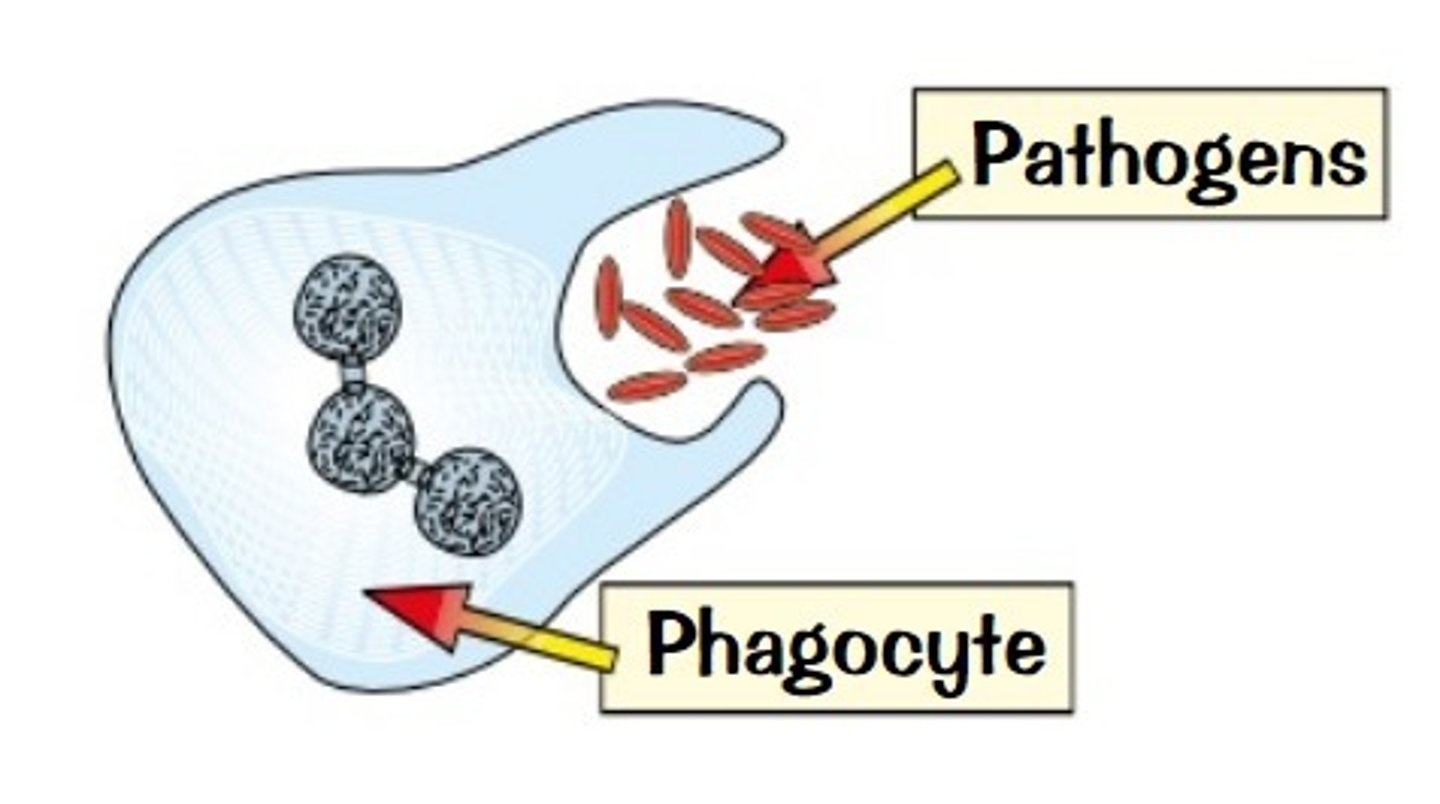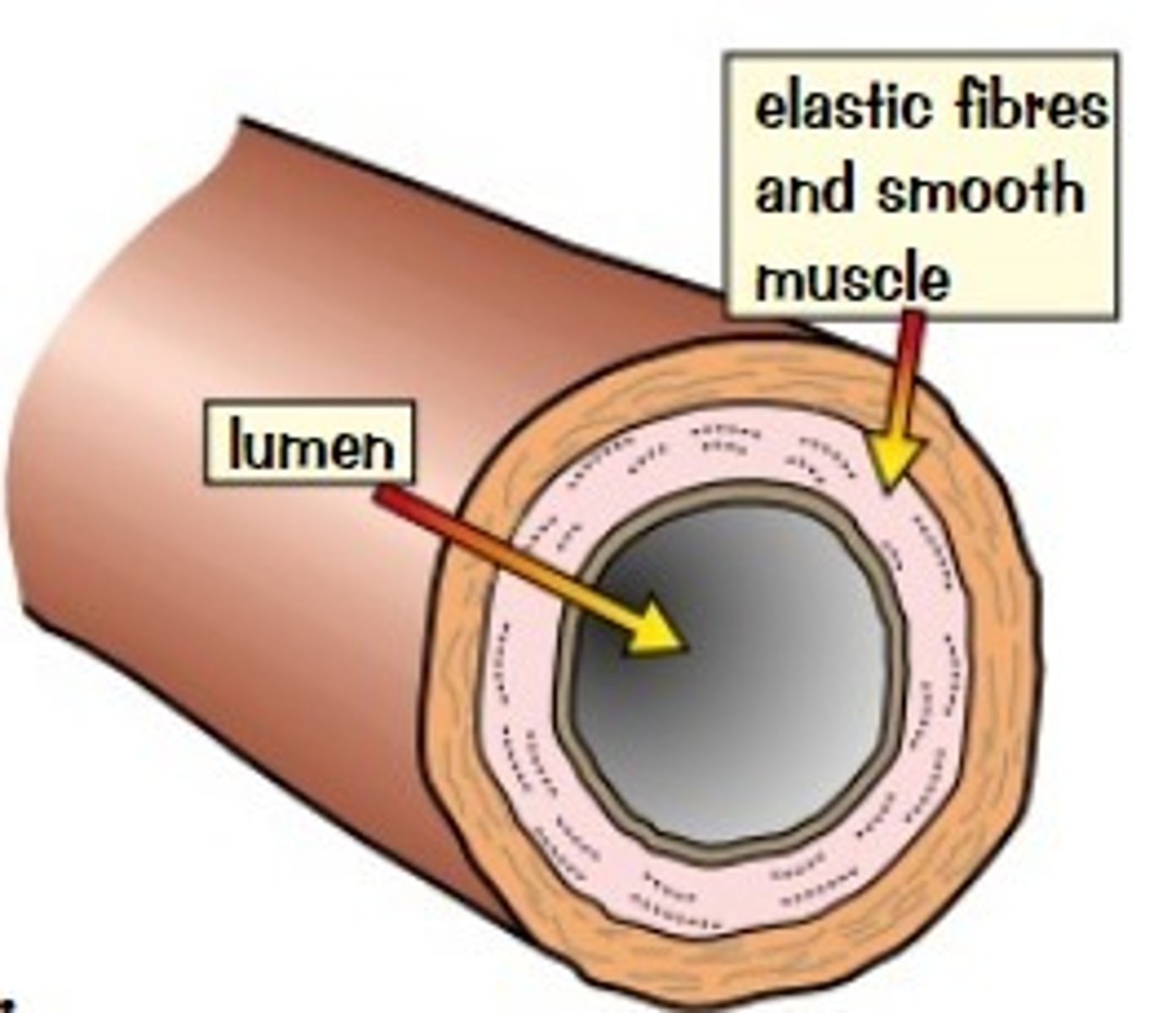Biology Section 5 | Quizlet
1/43
There's no tags or description
Looks like no tags are added yet.
Name | Mastery | Learn | Test | Matching | Spaced |
|---|
No study sessions yet.
44 Terms
What are the 4 main components of blood?
- plasma
- platelets
- red blood cells
- white blood cells
What is plasma?
plasma is blood but without the blood cells or platelets
What is the function of plasma?
it transports things around your body
What is the gas that plasma carries?
carbon dioxide, not oxygen because the red blood cells carry that
what are 5 things the plasma transports?
- components of blood
- digested food products, from the gut
-carbon dioxide
- urea from the liver to the kidneys
- hormones
What is the function of red blood cells?
they transport oxygen from the lungs to the cells of the body
What are two adaptations of red blood cells?
- they have a biconcave shape which gives them a large surface area for oxygen diffusion
- they don't have a nucleus which allows for more hemoglobin to be stored
What is the function of hemoglobin?
- it carries the oxygen
- it contains iron which reacts with the oxygen from the lungs
- this makes oxyhaemoglobin
What are pathogens?
they are microorganisms which cause disease
What happens when a pathogen enters your body?
it reproduces rapidly
How are pathogens fought of with?
white blood cells
What are the two types of white blood cell?
- phagocytes
- lymphocytes
What is the function of phagocytes?
they detect anything foreign and engulf the pathogen.

What type of a cell is a phagocyte, what do they do?
non-specific, they engulf anything that is foreign
What are the molecules on pathogens called?
antigens
Describe the process of what lymphocytes do when there is a pathogen?
- when the lymphocyte sees a foreign antigen it makes antibodies
- these antibodies lock onto the pathogen to alert more of the phagocytes
- antibodies are specific to each antigen.
- a lot of antibodies are then made and sent around the body to find other antigens like it
What type of cell are lymphocytes, and what do they do?
they are memory cells, when an antigen they have seen before comes in they can rapidly make antibodies
What are the three types of blood vessel?
- arteries
- capillaries
- viens
What do the arteries do?
carry blood away from the heart (oxygenated)
What do veins do?
carry blood to the heart (deoxygenated)
Describe the structure of arteries?
- strong and elastic walls
- walls are large in comparison to the lumen
- they have layers of muscle to make it strong

Why is it important that arteries have strong walls?
because the heart pumps out blood at high pressures
Describe the structure of capillaries?
- they are very small
- they have thin permeable walls for diffusion (one cell thick)
- small lumen
How have capillaries adapted?
- thin walls to allow for a short diffusion distance
Where are capillaries located?
located between the arteries and veins
Describe the structure of veins?
- normal thickness walls
- they have a big lumen
- they have valves which prevent the blood from going in the wrong direction
Why do veins not need to have thick walls?
because the blood pressure towards the heart is not high
How have veins adapted?
they have a large lumen to allow for easier blood flow
Describe the flow of blood through the heart (Big)?
- the right atrium receives the deoxygenated blood from the vena cava
- the blood moves through the right ventricle and gets pumped to the lungs through the pulmonary artery
- this blood goes through the left atrium from the pulmonary vein
- this blood goes through the left ventricle, which pumps it through the aorta to the body
What is a adaptation of the heart, and why does it have it?
the left ventricle has a much thicker wall as it has to pump blood around the whole body
this means the blood also has a higher pressure
Why does your heart pump faster when you exercise?
your cells respire more and hence your cells need more oxygen
your heart pumps faster to try and supply the cells with oxygenated blood faster
Describe what causes the heart to pump faster when exersiseing?
- exercise makes you respire more hence increasing the amount of CO2
- the high levels of CO2 are detected by receptors in the aorta and the carotid artery
- these receptors send signals to the brain telling the heart to pump faster
- the brain makes the heart contract more and with more force
Why does adrenalin make your heart pump faster?
because your heat is trying to supply your body with a lot of oxygen to prepare
Describe how hormones affect the hearts rate?
- when an organism is threated the adrenal glands release adrenalin
- the adrenalin binds to receptors in the heart which tells it to contract more and with more force
If something has to do with the lungs what's it called?
pulmonary
If something has to do with the liver what's it called?
heptic
If something has to do with the kidney what's it called?
renal
How is coronary hearts disease caused?
- when the coronary arteries that supply blood to the heart muscle gets blocked by fatty material
- this causes the arteries to get narrow, blood flow becomes restricted and less oxygen is provided to the heart
- this leads to a heart attack
What are three factors that can lead to coronary hearts disease?
- having a fatty diet (fat forms in arteries)
- smoking (increased blood pressure)
- being inactive (increased blood preassure)
Why does a high blood pressure lead to coronary hearts disease?
because a high blood pressure damages the arteries walls.
this makes blood clots more likely form
What is excretion?
the removal of waste products
What system are the kidneys apart of?
urinary system
Where is urea produced and from what is it produced from?
it is made in the liver from excess amino acids
What are the 3 main functions of the kidney?
- remove urea through urine
- adjust salt levels in the blood
- adjust water content of the blood